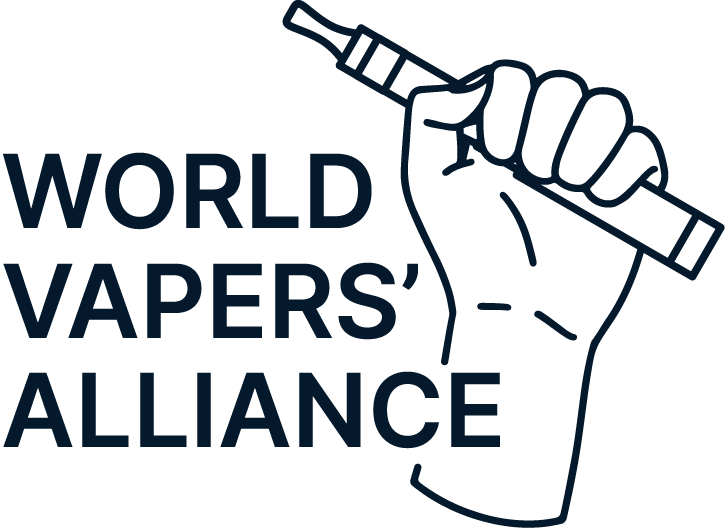Czy wiesz, że w USA, 80% lekarzy błędnie uważa, że nikotyna powoduje raka. Inne badanie pokazuje, że 57% opinii publicznej zgodziło się ze stwierdzeniem, że “nikotyna w papierosach to substancja powodująca większość nowotworów wywoływanych paleniem”. Jak bardzo percepcja odbiega od rzeczywistości?
Brytyjczycy Narodowa Służba Zdrowia stwierdzają, że: “Chociaż nikotyna jest substancją uzależniającą w papierosach, jest stosunkowo nieszkodliwa. Prawie wszystkie szkody wynikające z palenia pochodzą z tysięcy innych substancji chemicznych w dymie tytoniowym, z których wiele jest toksycznych”. Udowodniono, że wapowanie jest 95% mniej szkodliwe niż palenie i została zatwierdzona przez wiele międzynarodowych instytucji ochrony zdrowia jako bezpieczniejsza alternatywa, mimo to jest poddawana ciągłej kontroli.
Głęboko wierzę, że główną przyczyną tych błędnych przekonań na temat wapowania jest sposób, w jaki media relacjonują ten problem. Zwykli ludzie są stale narażeni na twierdzenia, że wapowanie powoduje zaburzenia erekcji, prowadzi do ślepoty lub jest przyczyną EVALI. Jednocześnie prawie nikt nie wspomina o tym, że prawie 70 milionów palaczy rzuciło palenie dzięki wapowaniu. Prawdopodobnie jedno z największych zwycięstw w dziedzinie zdrowia publicznego ostatnich dekad pozostaje niezauważone przez znaczną część opinii publicznej i decydentów. Zamiast tego, każde fałszywe badanie lub ankieta zyskują ogromny rozgłos medialny.
To problem – dla zdrowia publicznego, dla palaczy e-papierosów i dla mnie. Gdyby rządy kierowały się nauką, 200 milionów istnień Można by uratować na całym świecie, idąc w ślady Wielkiej Brytanii i zachęcając palaczy do przejścia na wapowanie. Zamiast tego w USA, rośnie liczba palaczy Po raz kolejny od dekad. Panika i brak informacji na temat wapowania dosłownie zabijają miliony ludzi, którzy z powodu dezinformacji boją się porzucić palenie papierosów. Ta wrogość wobec wapowania szkodzi również setkom tysięcy aktywistów na całym świecie i sprawia, że ich misja, aby umożliwić jak największej liczbie osób rzucenie palenia, staje się jeszcze trudniejsza.
Aktywiści ci obrali sobie za cel walkę o prawo do wapowania i unikanie śmierci z powodu palenia. Niestety, zbyt często ci ludzie trafiają na linię ognia mediów i są oskarżani o najróżniejsze rzeczy. Jeden z aktywistów powiedział mi: “Nigdy nie sądziłem, że muszę zostać aktywistą, żeby rzucić palenie”. To smutne stwierdzenie, ponieważ osoby, które potrafią rzucić palenie, powinny być celebrowane, a osoby, które poświęcają znaczną część swojego życia pomaganiu innym w rzucaniu palenia, powinny być celebrowane jeszcze bardziej.
Prawda jest taka, że niektóre media celowo nie chcą poruszać samego tematu, ponieważ wiedzą, że wapowanie ma swoje uzasadnienie naukowe i doświadczenie milionów ludzi. Największa gazeta we Francji postanowiła napisać o moich butach, zamiast o samym wapowaniu. Osobiście uważam, że atak to niewielka cena za możliwość walki o wapowanie, ale szkoda, bo odwraca to uwagę od głównego problemu: jak ratować życie.
Jednak ataki te są jeszcze gorsze, gdy są ewidentnie fałszywe. Media niedawno twierdziły, że “ujawniły” strukturę organizacyjną WVA. Tak, otrzymujemy finansowanie z Centrum Wyboru Konsumentów. To prawda, ale nie jest to tajemnicą. Zainteresowani dziennikarze mogą odwiedzić naszą stronę internetową i zapoznać się z informacjami w sekcji ‘O nas’. Centrum Wyboru Konsumentów ma otwarte wpis na blogu Z oddaniem i zaangażowaniem opowiadają się za powodami, dla których wspierają WVA, i ujawniają swoich darczyńców, w tym firmy produkujące nikotynę i tytoń. Po prostu nie ma tu żadnej tajemnicy. Frustrujące jest to, że media potrafią przeinaczać informacje publiczne i tworzyć z nich teorie spiskowe. WVA ma pełną niezależność w swojej pracy i nikt nie ingeruje w naszą działalność. Wszelkie sugestie, że jakiś darczyńca miałby lub mógłby kierować naszymi działaniami lub zatwierdzać nasze publiczne oświadczenia, są po prostu nieprawdziwe i fałszywe. Dopóki tu jestem, to się nie zmieni.
Dlaczego więc się zaangażowałem? Niestety, to częsta historia dla wielu aktywistów. Byłem palaczem, który zaczął dość wcześnie i ostatecznie uzależniłem się od “dobrych, starych papierosów”, mimo że zawsze wiedziałem, że są szkodliwe. Jednak w 2016 roku postanowiłem spróbować wapowania. Odwiedziłem sklep z waporyzatorami za rogiem w Wiedniu, otrzymałem fantastyczną radę od właściciela i praktycznie od tego momentu rzuciłem palenie. To był moment, w którym uświadomiłem sobie, jak fantastyczną innowacją było i nadal jest wapowanie, zwłaszcza po tym, jak widziałem, jak praktycznie każdy palacz wokół mnie poniósł porażkę w próbach rzucenia palenia. Kiedy pracowałem w niemieckim parlamencie, zdałem sobie sprawę, że fakt, iż tak wiele osób rzuciło palenie dzięki wapowaniu, nie był pochwalany przez większość polityków. W rzeczywistości chcieli utrudnić palaczom dostęp do waporyzatorów, mimo że nic o tym nie wiedzieli. To tak bardzo mnie zirytowało, że postanowiłem przekształcić swoją pasję w zawód.
Latem 2020 roku skontaktowałem się ze starymi znajomymi z Consumer Choice Center, którzy zaczął Aby zgromadzić podobnie myślące osoby i grupy, które widziały z pierwszej ręki korzyści i potencjał waporyzacji pod parasolem World Vapers Alliance Celem inicjatywy jest wzmocnienie głosu pasjonatów waporyzacji na całym świecie i umożliwienie im wprowadzania zmian w swoich społecznościach. Aby zgromadzić waperów na całym świecie, aby upewnić się, że zostaną wysłuchani, zwalczać dezinformację na temat waporyzacji i wspierać kampanie, aby zapewnić, że przepisy są opracowywane z myślą o interesach waperów i zdrowia publicznego. A reszta jest historią. Z dumą dołączyłem do walki z aktywistami na całym świecie, aby bronić waporyzacji i walczyć o to, aby palacze mieli takie same możliwości rzucenia palenia, jakie miałem ja.
To wszystko prowadzi do ważnego pytania. Dlaczego aktywiści i organizacje takie jak WVA są ciągle atakowani? Myślę, że prosta odpowiedź brzmi: dlatego, że wapowanie odnosi sukcesy. Nauka jest jednoznaczna: konsumenci tego chcą, a coraz więcej polityków (choć wciąż zbyt mało) zdaje sobie sprawę z potencjału wapowania w redukcji szkodliwości palenia tytoniu. Hejterzy będą hejtować, ale wydaje się, że to nie przypadek, że ataki na WVA następują po zakończeniu bardzo udanej kampanii wokół Planu Pokonania Raka (Beating Cancer Plan). Prowadziliśmy kampanię na rzecz uwzględnienia zasady redukcji szkód w planie i przeciwko potencjalnemu zakazowi stosowania aromatów. W rezultacie instytucja UE po raz pierwszy w historii przyznała, że wapowanie może pomóc palaczom w zmianie nawyków i zobowiązała się do redukcji szkód. Ponadto całkowity zakaz stosowania aromatów w wapowaniu nie został już uwzględniony. Oczywiście te sukcesy były wynikiem wysiłków wielu organizacji i ekspertów, ale niezaprzeczalne jest, że WVA odegrała ważną rolę w tym procesie. To sprawiło, że staliśmy się celem. Przeciwnicy e-papierosów nie chcą, żebyśmy wygrali i o tym nie powinniśmy zapominać.
Mogę zapewnić, że się nie poddamy i będziemy kontynuować walkę o wapowanie, aby uratować wiele kolejnych istnień!
Michał







